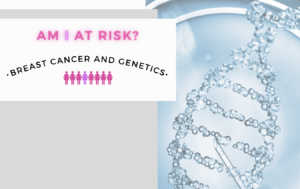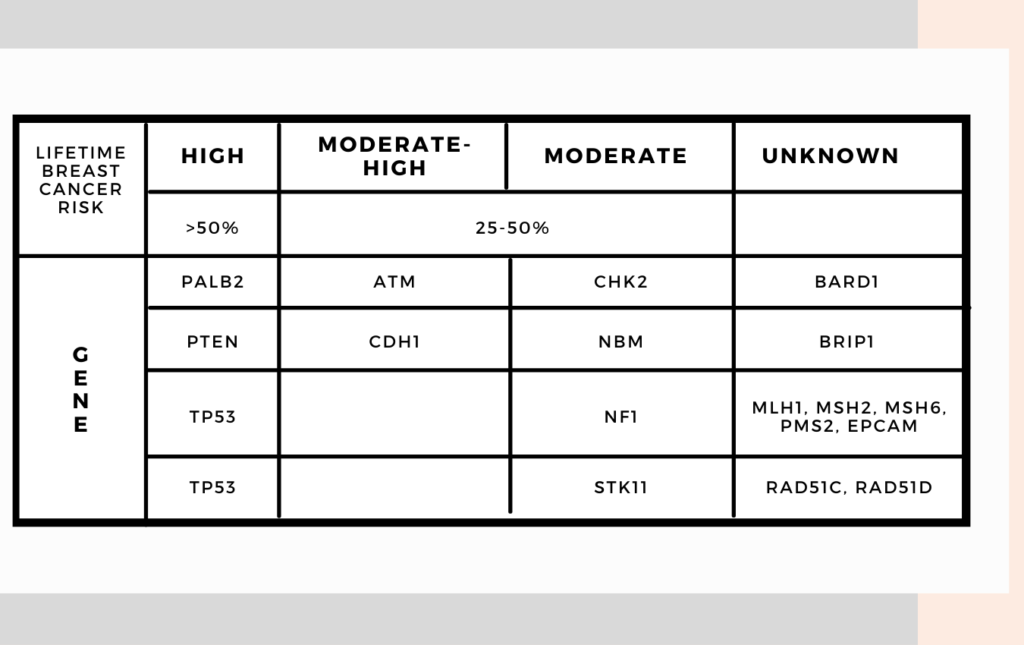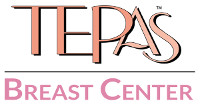Breast Cancer and Genetics: Am I at risk?

About 1 in 8 or about 13% of women in the United States will develop breast cancer during their lifetime. Genetics is the science which explains how genes are passed, or inherited, from parents to children. We believe 5% to 10% of breast cancers are hereditary or due to abnormal, or mutated, genes being passed from one generation to the next. It is critical to understand whether you have a genetic mutation, since some mutations may increase your personal risk for developing breast cancer from 13% to 70%!
Healthy BRCA1 and BRCA2 (Breast Cancer genes) repair damaged cells, especially in the breast and ovary. Women, and some men, who have a BRCA1 or BRCA2 mutation often have family members with ovarian, breast, skin, colon, and pancreatic cancers. Women with a BRCA1 mutation have a 55-72% chance and those with a BRCA2 mutation have a 45-69% chance of developing breast cancer by their 70’s. Women with these mutations who develop breast cancer are then at a 20-50% chance for developing a new cancer in the opposite breast. These mutations also increase the risk of ovarian and other cancers.
New genetic mutations are being discovered every year. There are many that may increase your risk for developing breast cancer:

Women with these genetic mutations tend to develop breast cancer at a younger age. Men with the BRCA2 mutation have higher risk of breast cancer and prostate cancer while those with BRCA1 mutation have about 7 times higher risk of developing prostate cancer.
It is important for patients with a family history of breast or other associated cancers to see a breast cancer specialist for genetic testing and to discuss early mammogram, ultrasound and breast MRI screening. These are usually covered by insurance.
Written by:
Emran Imami, MD, FACS, MBA
Founder of TEPAS™ Breast Center
Clinical Surgical Faculty, Burrell College of Medicine
Paul Uzodinma
3rd-year medical student at Burrell College of Medicine

